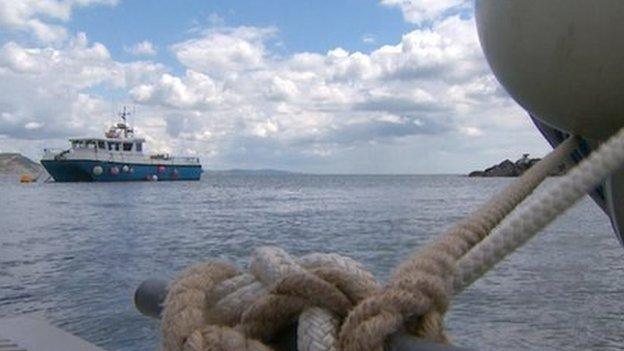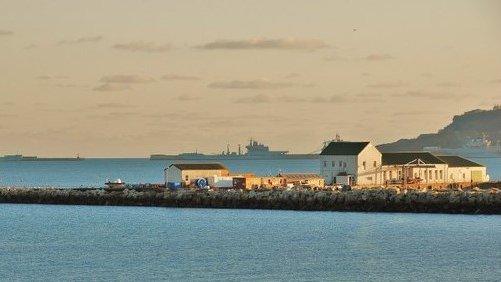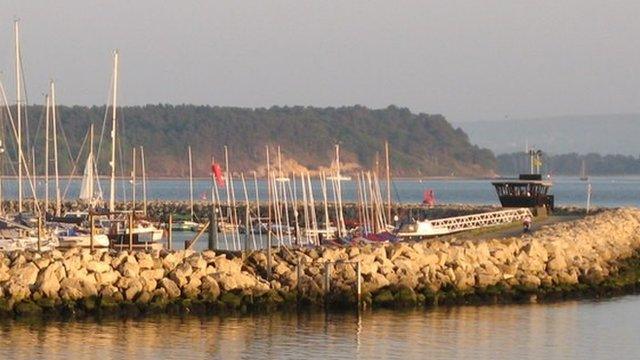Whole scallop toxin levels in Dorset above legal limit
- Published

Samples were taken from Lyme Bay in Dorset
Scallops taken from the Dorset coast still contain toxin levels above those safe for human consumption following an "algal bloom" in May.
The Weymouth Port Health Authority (WPHA) has taken samples of scallops from Lulworth Banks and Lyme Bay.
It said the scallops still had amnesic shellfish poisoning levels above the legal limit they can be sold having.
However, the WPHA said samples of shucked scallops - the muscle and roe of the scallop - had safe toxin levels.
'Species of concern'
The authority said shucking needed to be done in approved processing establishments to prevent cross-contamination.
Restaurants have been warned against shucking scallops themselves because of the danger of contaminating food preparation surfaces.
Amnesic shellfish poisoning (ASP) can cause neurological symptoms, such as dizziness and confusion, and in "very rare cases" death.
It is stored in the digestive systems of scallops.
The presence of ASP toxin follows the growth of an "algal bloom" in the English Channel.
Casual gatherers of clams, oysters, mussels and scallops off the Dorset coast have also been warned the shellfish could contain toxins from the May bloom.
However, the WPHA said scallops were the species of concern because they were good at picking up the toxin but poor at excreting it.
In May, Portland Harbour closed to the gathering of filter-feeding molluscs after tests showed ASP in the algae.
- Published21 May 2014

- Published30 October 2013
